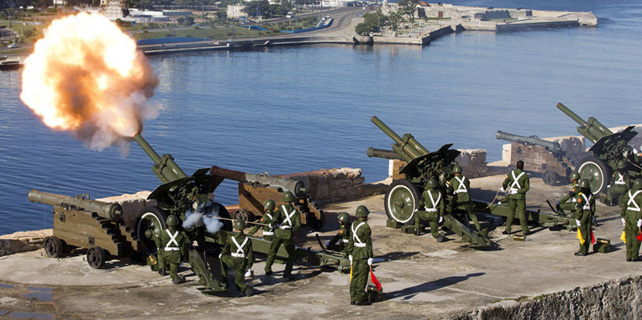Why China needs Xi Jinping as its core leader
What does Xi as core mean in a historical context? It was Deng Xiaoping who introduced the concept when he designated Jiang Zemin as “core of the third generation” of central leaders, bolstering Jiang’s stature following his unexpected appointment as party leader in 1989. At the time, China was facing the dual impediments of economic stagnation and social uncertainty at home, and economic quarantine and diplomatic isolation abroad. As Deng pointed out: “Any leading group should have a core; a leadership with no core is unreliable.”
Xi has encountered obstacles; if there were no obstacles, there would be no need for a core leader
Only then did Deng retrospectively apply the novel term to Mao Zedong and to himself, as core of the first and second generations, respectively. (Of course, Mao was so utterly dominant that calling him core during his lifetime would have seemed a demotion. Deng remained core even when he no longer held any official position.)
Today’s world is more complex. China faces threats at home and abroad. Volatility grows and uncertainty abounds – the Middle East and Donald Trump are offered as evidence. The need to secure China’s stability is more essential than ever, and thus to strengthen Xi’s authority is a primary reason, I’m told, for designating Xi as core leader. Party theorists say China “urgently” requires a political nucleus that is sophisticated and nuanced, attuned to contemporary times. Though conditions now differ from those in 1989, Deng’s admonition rings timelessly true.
However, that a core leader is needed now does not mean one will always be needed. When China becomes a fully modernised nation, perhaps by mid-century, conditions may change again.
I hear frequently of the “painful lessons of China’s century of blood and tears” and that for China not to have a tested and authoritative leadership core would be “unthinkable”. Party inner talk says “Xi Jinping has passed the test of the people” to be China’s political core, leadership core, and a core of the times. Having a core means acknowledging that the party system is not the ‘emperor system’
Chinese scholars argue that “core” is a unique characteristic of Chinese political theory – however inapplicable (even inexplicable) in Western political theory. They call Western concerns that Xi as core leader means that “a new emperor is born” wildly unfounded, even paranoic. In feudal society, the emperor ruled unconditionally with arbitrary imperial power, and in such a “command-obey” system, goes the argument, there is simply no need for a core.
Rather, given today’s party political structure, the concept of a core both strengthens cohesion and serves to prevent a personality cult, not to promote one. Having a core means acknowledging that the party system is not the “emperor system” – absolute power is rejected – and that the optimum system, at least for the foreseeable future, is a combination of concentrated centralism and democratic collective leadership.
Corroborating this functional balance, in the communiqué issued following the sixth plenum, the “collective leadership system” is reconfirmed. It states: “The implementation of collective leadership and personal division of labour is an important component of democratic centralism and must always be adhered to.” And it stresses: “Any organisation or individual shall, under any circumstance, not be allowed to violate this system for any reason.” The three “any’s” seem no accident.
Some analysts see contradictions. On the one hand, the communiqué calls for democracy and constructive criticism internally within the party. On the other, disobeying the central leadership is forbidden, backed by vigilant supervision and tough discipline.
Yet to read these statements as contradictory is to misunderstand what is happening here. Xi appreciates the complex and arduous tasks that lie ahead. He told me so a decade ago, and it is obviously truer today than it was then. The state-ments are harmonised, first, by the party’s motivation to seek optimum policies for the country, and second, by keeping most of the divergent views internal. Though there are concerns, no one here worries that Xi will become Mao
True loyalty is telling leadership in private what one really believes is in their best interests, not pandering and fawning by repeating what one thinks leadership wants to hear. Though there are concerns, no one here worries that Xi will become Mao.
China is now the world’s largest trading nation and its second-largest economy. China’s diplomacy is expanding and its military is growing. From its Belt and Road initiative building infrastructure and facilitating trade in over 60 developing countries to its leading role in the UN peacekeeping forces, China, the “Middle Kingdom”, is involved in every meaningful matter of international affairs.
So, what kind of China do we want? Certainly not one with weak central leadership and fragmented citadels of power. With its huge and imbalanced population, and its diverse culture and traditions, China today requires a leader with sufficient strength and prestige to secure social stability, drive economic reform, and guide it in being a responsible world power. Xi as core leader should be good for China and, thus, for the world.
Robert Lawrence Kuhn is a public intellectual, political/economics commentator, and an international corporate strategist.
The opinions expressed here are those of the writer and don't represent views of China Daily website.
















